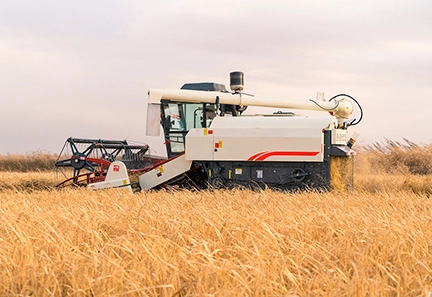As industries continue to demand ever greater precision and flexibility in hydraulic systems, pilot operated directional control valves stand at the forefront of innovation. These valves, with their advanced features, have evolved beyond basic control mechanisms to become sophisticated components that orchestrate the intricate dance of hydraulic fluid within modern machinery. Let's delve into the advanced features and innovations that define the prowess of pilot operated directional control valves.
One of the groundbreaking advancements in pilot operated directional control valve is the integration of proportional control technology. This innovation allows for precise control over the flow rate and direction of hydraulic fluid. By modulating the valve opening in proportion to the desired output, these valves enable fine-tuning of fluid dynamics. This level of control is especially crucial in applications where varying speeds, gradual movements, or nuanced adjustments are required.
In response to the dynamic nature of many industrial operations, advanced pilot operated directional control valves now feature load-sensing capabilities. These valves have the ability to adjust the flow of hydraulic fluid based on the system's load requirements. By constantly sensing and adapting to changing conditions, load-sensing valves optimize energy efficiency, reduce heat generation, and enhance the overall performance of hydraulic systems, especially in applications with varying loads.
The advent of Industry 4.0 has seen a significant leap in the integration of electronic control systems with pilot-operated directional control valves. These smart valves can be seamlessly integrated into electronic control architectures, enabling real-time monitoring and adjustments. Electronic control allows for remote operation, data collection, and the implementation of complex control algorithms. The marriage of electronics and hydraulics brings a new level of intelligence to hydraulic systems, enhancing their adaptability and responsiveness.
To ensure the reliability of hydraulic systems, advanced pilot-operated directional control valves incorporate fault detection and diagnostic features. These valves are equipped with sensors and monitoring systems that can detect anomalies in real-time. The ability to identify issues such as leakage, pressure drops, or irregularities in valve performance allows for proactive maintenance, reducing downtime, and preventing potential damage to machinery.
Innovations in design have led to more compact and modular configurations of pilot-operated directional control valves. These valves are designed to occupy less space while maintaining robust performance. The modular nature allows for flexible system integration, enabling engineers to tailor hydraulic setups to specific requirements. The streamlined designs also contribute to reducing the overall footprint of hydraulic systems, a critical factor in applications where space is a premium.
In conclusion, the advanced features and innovations in pilot-operated directional control valves represent a paradigm shift in hydraulic control. From proportional control technology and load-sensing capabilities to electronic control integration, fault detection, energy-efficient designs, and compact modularity, these valves redefine the possibilities within hydraulic systems. As industries continue to push the boundaries of efficiency, adaptability, and sustainability, pilot-operated directional control valves emerge as dynamic components that not only respond to current needs but also pave the way for the future of precision hydraulic control. Their evolution from basic valves to sophisticated control systems marks a transformative era where innovation and hydraulic prowess converge to redefine the very essence of fluid power in modern machinery.


